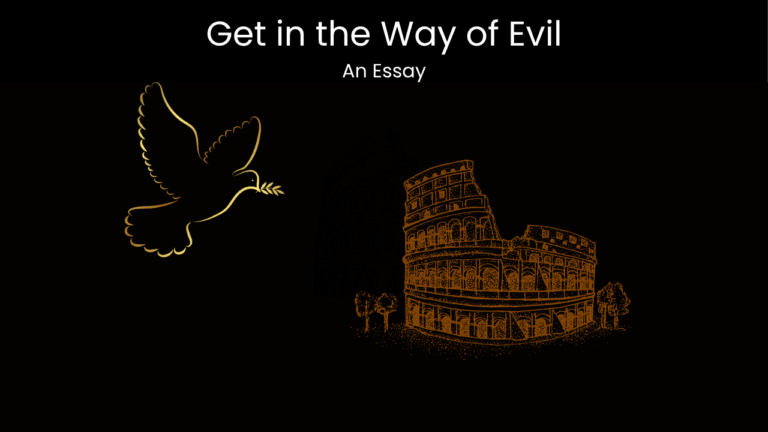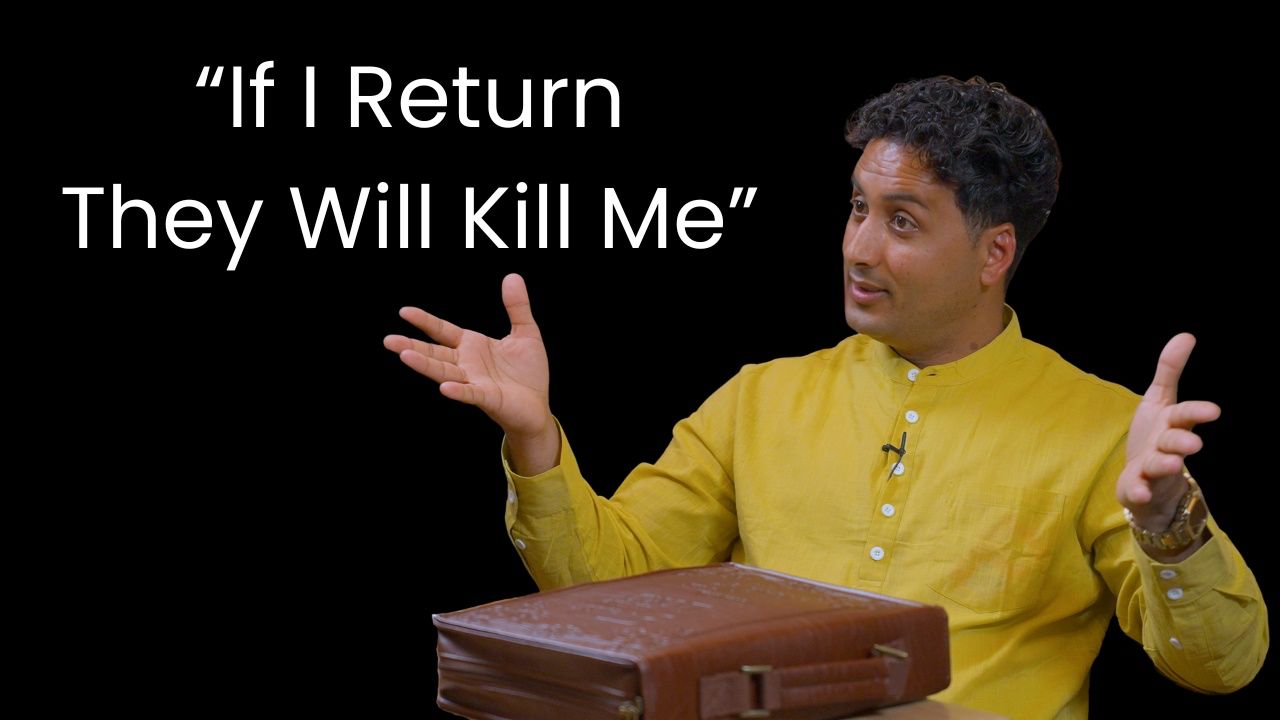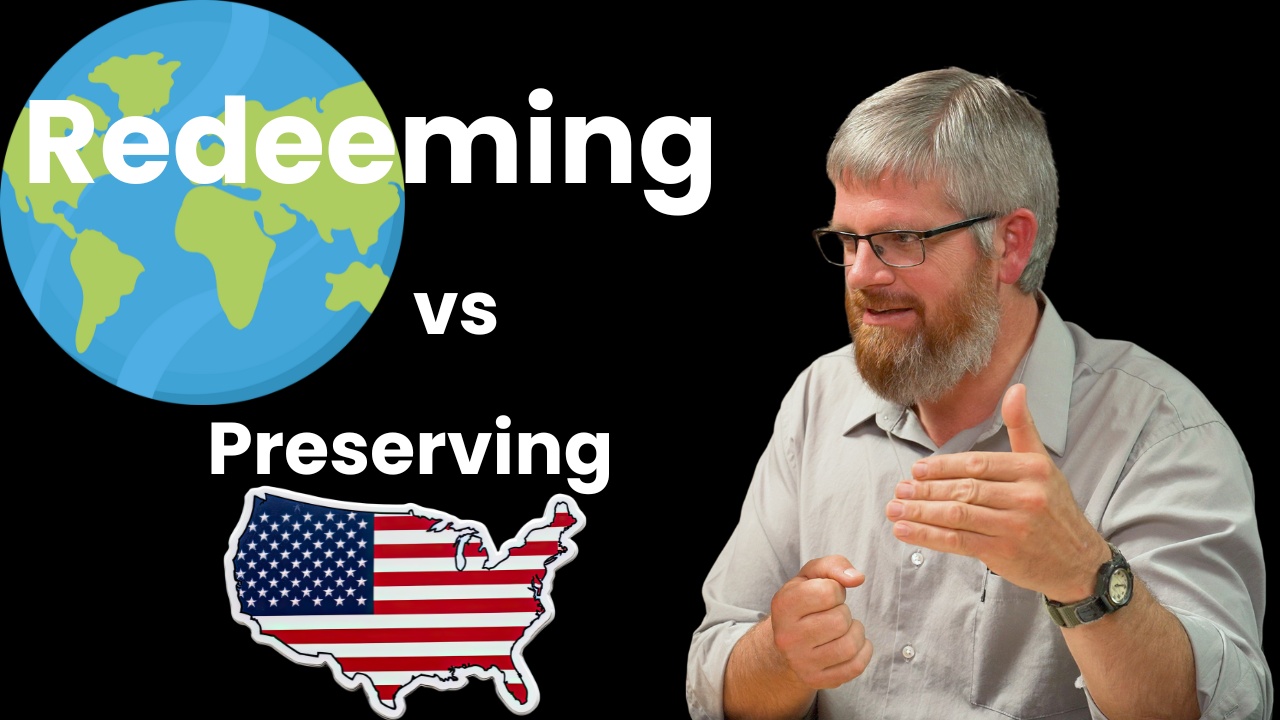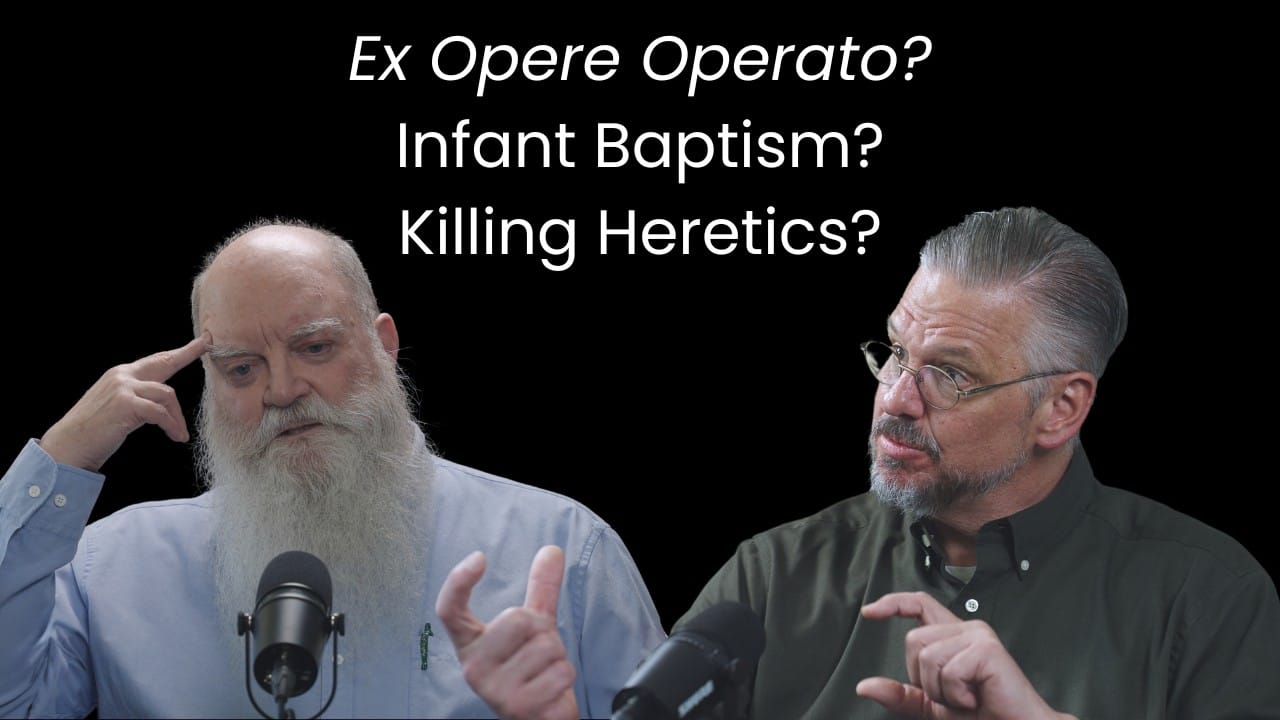Get in the Way of Evil

Listen to a related message by Val Yoder here.
“Get in the Way of Evil” was originally published in the Summer 2017 issue of Daughters of Promise magazine (used by permission).
When the Apostle Andrew was captured and brought before Governor Aegeas, Aegeas told Andrew, “If you don’t stop preaching this message about Jesus and his cross, I’m going to crucify you on one too.” Andrew replied, “Sir, I would not have preached about the glory of the cross, if I was not willing to die on one.” He was taken and tied to the splintery wooden beams of a cross, where he hung in excruciating pain. He preached the Gospel for three days until he finally went to be with the treasure of his heart.1
Much of the Western church has deceived herself into thinking that she lives in a very unique dispensation (or geography) where Jesus’ words don’t apply. Even as contemporary Anabaptists we have passed off His clear, undisputable statements as not applying to us. We agree that what He said was true in the early church, and then to some degree throughout the Middle Ages. We see the truth of His words again in the Reformation and even today in some other remote parts of the world. “But”, we think, “praise God that His words aren’t true for us and haven’t been for our parents, or our grandparents, and beyond them, well … that’s too long ago to worry about.” Jesus said, “If the world hate you, ye know that it hated me before it hated you […] If they have persecuted me, they will also persecute you […].” (John 15:18-20) We smugly say, “Thank you, Lord, that we don’t live in such a traumatic era of history.” But Jesus was not saying you might suffer persecution, some will suffer persecution, or if you are carnal Christians you will suffer persecution. If we follow Him, we will be persecuted. What does our lack of persecution say about us?
I have lived too much of my life denying this truth, hoping it was not true. I grieve over what sweet intimacy with Christ that denial has cost me. Until we are ready to die with Christ, literally, we are not prepared to live with Him either. Jesus was not speaking metaphorically when He tells us, “If any man will come after me, let him deny himself, and take up his cross daily, and follow me. For whosoever will save his life shall lose it: but whosoever will lose his life for my sake, the same shall save it.” (Luke 9:23-24).
A metaphor is a figure of speech in which a term or phrase is applied to something to which it is not literally applicable, in order to suggest a resemblance. Is Jesus only a metaphoric king? Was His death only metaphoric? No. Some would say, “But we don’t really die, that’s too radical, too hyper-spiritual—a martyr’s complex.” Shadrach, Meshach, and Abednego did more than metaphorically refuse to bow to the idol Nebuchadnezzar had erected. They did more than stand in their hearts while they knelt with their bodies. They stood out in that multitude like a sore thumb because they got in the way of evil.
Christ was talking about more than passing out tracts and singing in the park when He said, “And I, if I be lifted up from the earth, will draw all men unto me.” (John 12:32). That lifting up was His death. It was the Cross. It was laying down physical life, not metaphoric life. That was how Jesus got in the way of evil. Jesus’ words make it clear we will never win Western culture for the Kingdom of Christ through volleyball tournaments, Amish-made furniture, or even our church services. All of these may have a legitimate place, but they are not our means of getting in the way of evil. We must jump into the fray and tangle with the enemy. Persecution is not a toothache or a disgruntled neighbor. Persecution is getting scratched, clawed, bitten and maybe eaten by the enemy.
In October of 2014 a young boy slipped and fell into a tiger enclosure at the New Delhi Zoo. The surprised tiger watched and “played” with the crouching boy for fifteen minutes. Bystanders watched, yelled, threw stones and videoed, but no one went to his rescue. The boy was carried off and killed by the giant cat. If that was your son, would you have videoed the event? Would you have yelled and screamed for fifteen minutes? Or would you have convinced some friends to join you in saving his life? Adam also dismissed his responsibility. When he faced a situation that mattered the most to God, to Eve, to his children, to all mankind, he stood and watched as the serpent spoke to his wife. He watched evil progress without intervening.
The foundational difference between the early Christians and their enemies is that they did not believe they needed to survive. They did not expect to survive. We declare at our missions conferences, “Go your ways: behold, I send you forth as lambs among wolves.” (Luke 10:3) This is not a survival course. No Biblical doctrine guarantees our safety when the wolves of godlessness surround us. The scandal of Christ’s trial was the ultimate display of this world’s total injustice. The justice system found Him innocent, but still they whipped Him, made a crown of thorns and pressed it onto His head, and hit Him with the palms of their hands. These actions rage against justice. Do not depend on a speck of fairness in the system that will persecute you. Do not expect justice when you get in the way of evil.
In 400 A.D., a monk named Telemachus happened to be near a Roman stadium just as a brutal gladiators’ battle began. He was sickened. “In the name of Jesus, stop!” he shouted, but no one heard. People screamed to see more blood. Telemachus jumped over the wall into the stadium and landed among the gladiators. He yelled again, “In the name of Jesus, stop!” The surprised gladiators halted their fighting long enough to hear his cry. Furious at his interruption, they chased him down. When the dust settled, Telemachus lay dead on the floor of the stadium. The crowd was finally totally silent. The sight of a dead monk shocked everyone. Slowly the crowd began to leave. The gladiators and finally the emperor left, leaving only Telemachus’ body. Within an hour the emperor issued an edict: “No more war games in the stadium.”2
We must be willing to step between the abused and the abuser and shout, “In the name of Jesus, stop!” Stop divorces, abortions, church splits, pornography. We are not called to passive observance of sin. It is active confrontation with sin. Stepping into its way. Crashing the gates of hell. We do not step between the abused and the abuser with carnal weapons. We step between with spiritual weapons that are mighty through God for the pulling down of strongholds. We step between the seeker and the lie, the brotherhood and the post-modernist, the sodomite and his life-style. It is a grievous shame that we can argue on Facebook about the morality of relating to the gay community or the ethics of transgender bathrooms, and remain unengaged with the neighbor who aborts her baby and the fellow employee who is cheating on his wife.
Sisters, every time you appear in public with your elegant and modest dress, you are graphically getting in the way of evil. You are called upon to demonstrate the beauty of holiness to this decadent and immoral Western culture that allows Hollywood to determine the undress of this sensual culture. If American Christians were willing to get in the way of evil, the country’s jails would probably be populated with Christians.
Jesus came to die so that we might live. He sends us to die so that others might live. This was to be a repeated cycle throughout the New Testament dispensation. We blissfully sing, “This is my commandment that ye love one another, that your joy may be full,” but ignore the next verse, “Greater love hath no man than this, that a man lay down his life for his friends.” (John 15:11-13) We are told that, “… [T]he time cometh, that whosoever killeth you will think that he doeth God service.” (John 16:2)
We live in a time when this is, again, literally true. The baptism of blood is not metaphoric, it is the commitment level of anyone entering the “armed forces” of Christ’s Kingdom. It is the resolution of anyone who will get in the way of evil. Do not be unduly alarmed at the fiery ordeals which come to test your faith, as though this were some abnormal experience. Death has lost its victory. Death is only the passageway from a decadent and broken world to the beauty and health of Heaven. Rejoice when you are called to share Christ’s sufferings.
One day, when He shows Himself in full splendor to men, you will be filled with the most tremendous joy. You will walk through the parks and gardens of Heaven, fellowship with the redeemed, and feast at the tables of the New Jerusalem. You will be with a holy, beautiful Bridegroom of perfect character and love who unveils all the mysteries of our previous, present, and eternal life. “I will never leave you nor forsake you” Hebrews 13:5 will gain new meaning. Gratification will never end. Beauty will endlessly increase. Desire will be forever fulfilled. Most people know that we will worship God in heaven, but they cannot guess how thrilling it will be.
If we would get the briefest keyhole peek of the beauty in Jesus in His Home, in His plans for eternal escapades, we would look forward to death. We would be invincible in persecution as we use weapons that are not carnal but mighty through God to the pulling down of strongholds. Mark Batterson says, “It’s time to quit living as if the purpose of life is to arrive safely at death. It’s time to go all in and all out for the All in All. Pack your coffin!”3 God is calling the young people of the conservative Anabaptist church in America to enter the stadium. He is calling us to get in the way of evil. We are to storm the gates of hell! He is calling our churches to send out men and women who abandon this life because of their focus on the reality of the next life.
1Thieleman Van Bragt, (1938) The Martyr’s Mirror, Herald Press. Return to context⬏
2Monk Preston, The Monk Who Ended the Coliseum Games, www.prayerfoundation.org. Return to context⬏
3Mark Batterson, (2013) Going All In: One Decision Can Change Everything, Zondervan. Return to context⬏
Tags:








Laurie
4 years ago
I am looking for advice or a pastor to talk to about some questions I have. I was in a relationship with a Anabaptist. I am Evangelical Lutheran. I am confused and having trouble understand some things.